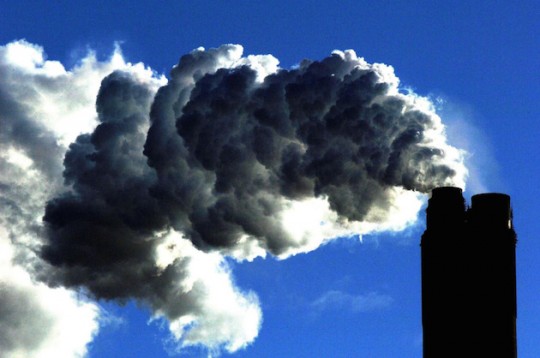David Harsanyi has a good post up over at the Federalist making the eminently reasonable case that increased health, wealth, and longevity at the international level are good things. We could stop a moment to ponder the oddity of being forced to make a case in favor of living longer, happier, healthier lives, but let's not; it's too distressing. Instead, let's just note, for the record, that the industrial revolution was totally worth it:
As Indur M. Goklany meticulously explores in his excellent book "The Improving State of the World," in recent decades we have made the world a lot cleaner, healthier and livable for humans. And we did so without surrendering much wealth or freedom. I suppose it makes me a technoutopian to trust that we can adapt and create ways to deal with whatever consequences – and obviously there are consequences – a thriving modern world drops on us. Historically speaking, though, would it have been better for humanity to avoid an "Age of Pollution" and wallow in a miserable pre-Industrial Age, where poverty, death, disease and violence, were far more prevalent in our short miserable lives? Or would we have chosen global warming? I think the latter. And I think we’d do it again.
"Obvs," as the kids say.
The past being immutable, it doesn't much matter whether or not we want to turn back the clock on human progress. The present, however, is another story. And there is a large contingent of radical anti-prosperity activists who would be remarkably happy to cripple the American economy and greatly worsen the lives of the American middle class in order to marginally reduce international CO2 emissions.*
American voters, naturally, are skeptical of such plans. When you present them the most basic, bottom line truth—reducing carbon emissions will cost you money, will limit your ability to travel, and will do little to staunch the flow of CO2 into the atmosphere—they balk. And they balk for good reason. There's a reason no serious efforts to pass anti-CO2 measures have reached the Congress. There's a reason why Obama is trying to figure out how to unilaterally impose anti-global warming measures. There's a reason why the EPA is trying to use the bureaucracy to cripple the coal industry rather than putting such measures up for a vote. It's because people look at the costs and the benefits and laugh out loud in the face of panic-stricken, bug-eyed "reformers."
Look, I'm all for reducing carbon emissions (though I think the threat of global warming** is vastly overstated). But I'm all for doing it in a way that won't impact the standard of living of your average American. You're not going to get legitimate, democratic support for these schemes until you can promise a reduction in carbon emissions that doesn't lead to a decrease in standards of living. Solar and wind? That's a bald-eagle-murdering pipe dream. We need more nuclear power, more fracking, more clean coal. We need less scaremongering, less neo-Malthusianism—less fear.
*China already dwarfs the United States in CO2 emissions and their output is only going to increase in the years ahead.
**Yes I think it's happening, at least in part because of CO2 emissions. No I do not think it's an existential threat, certainly not one worth crippling the American economy over.
